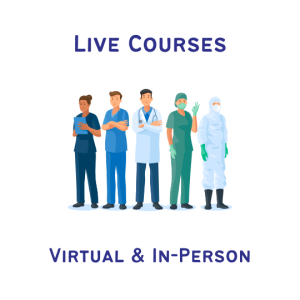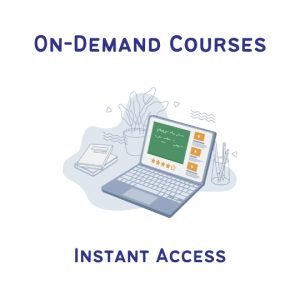
Published February 8, 2024 | Updated October 9, 2024
By Dr. Maliha Darmini
This is Dr. Maliha Darmini, an IMG in the UK. Trying to balance my medical expertise with the craft of storytelling.
Neurology is a diverse field where trainees operate both independently and as part of a multidisciplinary team (MDT) to assess patients dealing with both immediate and long-term issues. This speciality is well-suited for individuals who:
- Possess strong communication skills and adept clinical abilities.
- Demonstrate a problem-solving mindset with a keen interest in practical neuroscience applications.
- Are team-oriented collaborators while also capable of working independently to some extent.
Neurology ST4 follows the PHST Recruitment medical subspeciality training pathway, and follows a similar format to other medical ST3/4 applications.
In this article, we go through:
Key Documents
Neurology ST4 Recruitment Timeline
Check the schedule for crucial dates during the selection process on the recruitment timetable. The neurology application process follows the general higher speciality medical recruitment timeline.
| Vacancies published | Wednesday 13th November 2024 by 5pm |
| Applications open | Thursday 14th November 2024 at 10am |
| Applications close | Thursday 5th December 2024 at 4pm |
| Interviews | Thursday 2nd January to Friday 11th April 2025 (Neuro dates TBA) |
| Initial offers out | Thursday 15th April 2025 by 5pm |
| Interview Feedback | TBA |
| Post start date | Wednesday 6th August 2025 |
Recent advancements in Neurology and Stroke Medicine, fueled by innovations in Neuroimaging, Molecular biology, and effective therapies, have transformed the management of various neurological conditions.
The Neurology Curriculum (2022) now includes Stroke Medicine, with training spanning five years and encompassing Internal Medicine accreditation. The rising demand for neurologists, particularly those with expertise in stroke medicine, is evident, with numerous consultant posts being created to meet this need.
Neurology ST4 Application
Candidates applying for Neurology ST4 training in 2024 must meet the requirements in the person specification, adhering to the curriculum introduced in 2022.
Neurology, classified as a Group 1 speciality, necessitates the completion of the IMT stage 1 program or its equivalent. Moreover, all specialties within Group 1 will undergo dual accreditation, including General Internal Medicine.
Neurology ST4 Interview
Once successfully shortlisted for the interview, it’s crucial to commence thorough preparation early on. It’s recommended to gain a comprehensive understanding of what lies ahead in your interview preparation.
Let’s dig in…
The Interview will be conducted ONLINE. Therefore, ensure that your online interview setup is optimal:
Interview Format
The ST4 Neurology Interview comprises two stations, each with four questions. Each station is allotted 15 minutes (with 7.5 minutes per station), resulting in a total interview duration of approximately 35-40 minutes.
It’s worth noting that, candidates may begin at any station and tackle the questions in a different order.
Station 1 – Training & Clinical
Station 1 is all about your training to date. The assessors want to know that you’ve done everything you can to commit to Neurology as a speciality.
Question 1 – Training and Commitment to Neurology
In previous years, this station was divided into two sections: Application and Training, and Suitability and Commitment.
Now, these sections are combined into one. Candidates will face a single question covering both aspects, with scoring in each area. Applicants will be queried about their submitted application and training experiences, as well as their suitability and commitment to the field of Neurology.
You should elaborate on:
Question 2 – Case Presentation
For this question, you’ll discuss an ‘Interesting neurological case’ you’ve encountered, aiming for a clear, engaging presentation lasting around 3 minutes.
Focus on effective communication and highlighting the case’s learning points rather than detailed medical knowledge. Follow-up questions will be asked to delve into the key aspects of your presentation.
To get a better grip on this station, Practice by presenting in front of a mirror or filming yourself.
Station 2 – Non-Clinical Skills and Professionalism
This section takes you away from your clinical achievements and looks instead at how you would make a good med reg based on your leadership, management, and non-clinical skills.
Question 1 – Medical Registrar Suitability
The interview will assess non-clinical aspects of being a medical registrar, focusing on two key Capabilities in Practice (CiPs) from the Internal Medicine Stage 1 Curriculum.
These CiPs involve efficiently handling a diverse patient influx during an Acute unselected take and effectively managing a multi-disciplinary team (MDT), including discharge planning.
The question, provided verbally during the interview, pertains to your experience in leading a team for acute medical admissions. You might want to look through your ACATs from IMT to get some good information to present on for this question.
You will be expected to showcase examples of effective leadership, decision-making, and patient care within a 7.5-minute timeframe.
Question 2 – Professionalism & Governance
During this question, interviewers will present a brief verbal prompt focusing on your understanding of professionalism, standards, and governance within the speciality.
You’ll have around 7.5 minutes to respond, drawing on your experiences and knowledge of professional bodies, recent publications, and general aspects of governance. Reflecting on personal experiences, such as leading quality improvement projects, can enhance your responses.
Familiarizing yourself with Good Medical Practice principles and discussing relevant topics with senior colleagues can aid in preparation.
Interview Scoring
The interview consists of 5 scored areas with a total of 50 points.
- Quality markers range from 0 to 5: 0/1 (Very poor) to 5 (Excellent).
- Raw Interview Score (RIS) is the sum of the 10 scores, ranging from 10 to 50.
- Final points undergo a formula to combine with the shortlist score, resulting in a final mark out of 110.
- Candidates scoring ≤1 point are considered unappointable; a maximum of two scores of 2/5 is allowed.
Detailed processes and formulae are available on the ST4 recruitment website.
Interview Preparation
To prepare for interviews, practice with a variety of questions to build confidence and proficiency. Focus on articulating clear, concise responses that showcase your strengths and experiences.
Consider practicing with peers, mentors, or through mock interviews to simulate real interview scenarios. Reviewing common interview questions and reflecting on your own experiences can help you anticipate and effectively respond to different prompts.
Additionally, seek feedback to identify areas for improvement and refine your approach.
Resources
Practical Neurology is a crucial resource for upcoming neurology training, available for free to ABN (Association of British Neurologists) members. It covers various essential topics aligned with the neurological curriculum, enhancing your preparedness for clinical cases. Staying updated on emerging trends and hot topics discussed in the journal is valuable.
UpToDate similarly offers insights into the latest hot topics for 2022-23.
Conclusion
In conclusion, the Neurology ST4 interview is a pivotal step in the journey toward advancing your career in Neurology. Preparing diligently, showcasing your experiences, and effectively communicating your knowledge and skills will undoubtedly contribute to a successful outcome.
As you navigate this interview process, remember that it is not just an assessment of your clinical knowledge but an evaluation of your suitability to excel in the dynamic field of neurology.
Best of luck on your journey to becoming a proficient and compassionate Neurologist!













